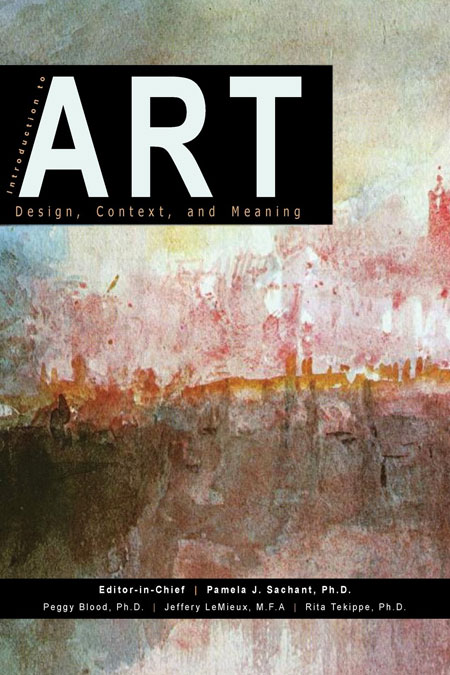The Use of Color in History, Politics, and Art

Editor
Sungshin Kim, Ph.D.
Contributing Authors (in order of appearance)
Thomas Radice, Ph.D.
Timothy May, Ph.D.
Victoria Hightower, Ph.D.
Robert Machado, Ph.D.
April Conley Kilinski, Ph.D.
Celnisha L. Dangerfield, Ph.D.
Michael Proulx, Ph.D.
Renee Bricker, Ph.D.
Christopher Jespersen, Ph.D.
Pamela Sachant, Ph.D.
Amy Hagenrater-Gooding, Ph.D.
Jonathan Miner, Ph.D.
ISBN
978-1-940771-08-3
Print Version
$32.99
This collection of papers from the 2012 Arts & Letters Conference, hosted by the University of North Georgia, explores how color can provide clues to the interpretation of history and politics, works of art, and literature. As ubiquitous as colors are to the human sensorium, a long tradition exists of dismissing them as superficial. An alternative aesthetic tradition explores how colors are valued for qualities—the primitive, the childlike, the sensual—that stand for a liberation from the dominant tradition. Such oppositions hint at the potential of color as a departure point to explore structures of thought in different cultural contexts.
The authors of this volume explore the role color can play, whether as abstract notion or considering particular colors, in the interpretation of culture, politics, and the arts.
Table of Contents
Introduction
Sungshin Kim
Part I Color and Political Power
1. Painting on a White Foundation: Color, Countenance, and Performance in the Analects and Han Feizi
Thomas Radice
2. Color, Adornment, and Social Conflict: Fashioning Cultural Identity in Ancient Greece and Rome
Michael Proulx
3. Color Symbolism in the Turko-Mongolian World
Timothy May
4. Lawful Colors and Color of Law in Late Tudor England
Renee Bricker
5. From Dun to White: Forts, Power, and the Politics of Restoration in the United Arab Emirates
Victoria Hightower
6. The Colors of American Diplomacy
Christopher Jespersen
Part II Color and Representation in Art and Literature
7. Metachromatics: The Historical Division Between Color and Line/Form as Analytic
Robert Machado
8. Jean-Léon Gérôme and the Color of Flesh
Pamela J. Sachant
9. “Whiteness” and Identity in Jean Rhys’s Wide Sargasso Sea and Michelle Cliff’s Abeng
April Conley Kilinski
Part III Color in Contemporary Discourse and Debates
10. Pink is the New Green: Raising Little Shoppers from Birth
Amy Hagenrater-Gooding
11. Understanding Color, Race, and Identity through the (Body) Politics of Barack Obama
Celnisha L. Dangerfield
12. Aversion to the Color Gray: The Monochromatic Nature of Turkish Domestic and Foreign Policy
Jonathan S. Miner
